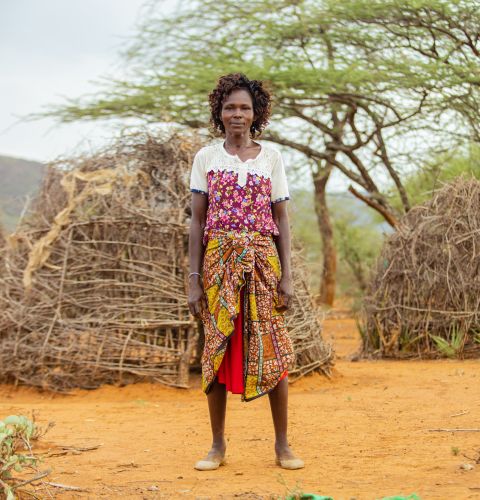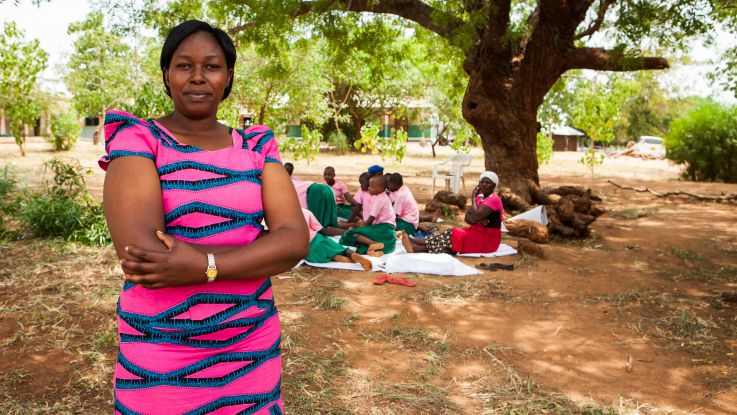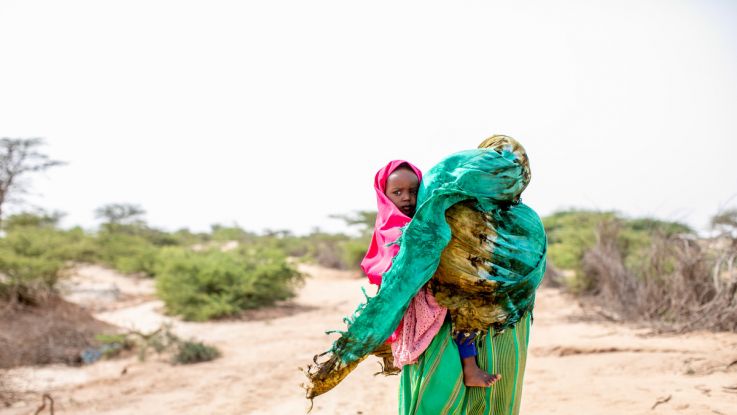Kenya
Why we work in Kenya
Kenya is the largest and most advanced economy in east and central Africa. Yet nearly half of the population live below the poverty line.
Hundreds of thousands of children in Kenya are malnourished due to the effects of living in extreme poverty, and many children die before their fifth birthday.
Droughts are common in the region, leaving millions of people in need of food aid and flooding in the Rift Valley, displacing thousands of people and destroying crops.
Women's rights in Kenya
Women and girls in Kenya usually do not enjoy the same rights as men. They’re often denied an education and the right to own land.
Many are also subjected to domestic violence, sexual exploitation, and harmful practices such as female genital mutilation (FGM). Although FGM is illegal in Kenya, in highly traditional areas up to 98% of girls could be at risk.
What we do in Kenya
Protecting women from violence
We train women’s groups to take up cases of violence against women and girls by working proactively with the police, health workers, courts and women lawyers.
Our work with women’s groups, girls’ clubs and rescue centres is helping to stamp out domestic violence and abuse, forced child marriage and harmful traditional practices such as female genital mutilation (FGM).
Tackling period taboos
We're supporting local girls’ clubs that provide information about periods, sex and pregnancy, so girls are better informed about their bodies. We work alongside local women’s groups to tackle period poverty and help girls in some of the poorest communities in Kenya access sanitary products.
By giving girls the resources they need to manage their periods with dignity, we’re helping to break cycles of poverty and challenge gender inequality.
Ending hunger
We’ve set up hundreds of local farmers’ groups and trained them in modern farming methods. We help communities grow drought-tolerant crops and share their knowledge so they don’t have to go hungry.
During times of drought we support the poorest communities through feeding programmes, and our innovative farming and water harvesting projects help families build long-term resilience to drought.
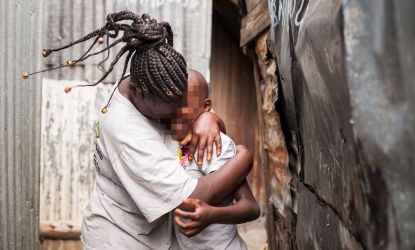
Olive holding her daughter, Grace, now 13, who has learning difficulties and a hearing impairment. This image has been pixellated to protect Grace's identity.
Sheldon Moultrie/ActionAid
Justice for survivors of violence
While Olive’s eight-year-old daughter, Grace, was out playing, she was raped by a 65-year-old man.
Mum Olive, 36, remembers: “When I heard my daughter had been raped I was so scared I couldn’t move. I felt a horrible pain in my stomach.”
Thanks to Alice – a local community volunteer who works with ActionAid and our local partner, the Wangu Kanja Foundation, to stand up to violence in her community – the perpetrator was arrested and has received a sentence of life imprisonment.
Grace, now 13, is deeply traumatised by her experience, but is doing well at a specialised unit at school and receives regular counselling from the Wangu Kanja Foundation.
“I am very grateful to Wangu Kanja and ActionAid for supporting my family,” Olive says. “Through them I have met other mothers whose children have been attacked. Now I do not feel alone.”
Donate to support our work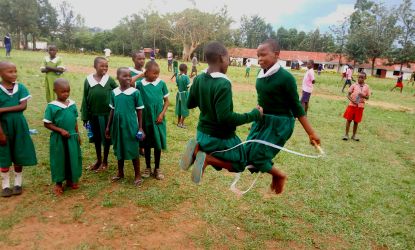
Helping girls like Everlyne stay in school
When Everlyne was just 14, her parents wanted to take her out of school as they felt they couldn't afford it, and there were discussions about her getting married.
Thanks to ActionAid’s work in the community, Everlyne knew her right to stay in school and that she could go to her head teacher for help. He threatened to report Everlyne’s parents and convinced them to let her continue. They were regretful and are now supportive of her studies.
Everlyne is now one of three girls in her village that have gone on to secondary school. She says: “My favourite subject is biology. If I do well, I’ll have a better life.”
Support our work helping girls stay in schoolChildren in Kenya enjoy their skipping ropes which they received through Gift Fund.
ActionAid
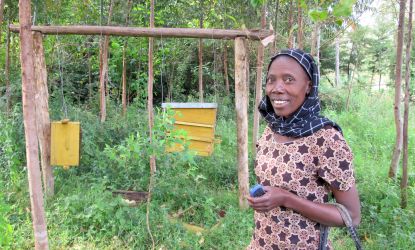
Helping women like Josephine earn their own income
An innovative beekeeping project supported by ActionAid is benefitting 4,200 people in Kuria. Designed to provide women with an independent source of income, the project is run by a local community organisation and 20% of the profits go back into running the business. The scheme has made a big difference to women's lives, giving them their own money so they can put food on the table.
Josephine, who has been helped by the project, says: “Fifteen litres in one hive is a good harvest; sometimes in the dry season you get less. I sell some of my harvest, but keep some to eat because it is very nutritious. I have four hives from ActionAid.”
Find out more about our work on ending hungerThanks to an ActionAid supported bee keeping project in Kenya, Josephine is earning her own income
,ActionAid
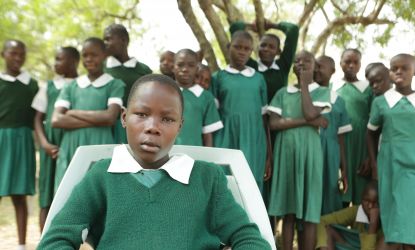
Thanks to an ActionAid girls' group, Judy and her classmates know how to manage their periods with dignity.
Natasha Elkington/ActionAid
Educating girls about menstrual hygiene
Judy is 12 years old. She hasn’t started her period yet but when she does, she won’t be afraid.
ActionAid is working in Kenya to tackle period taboos and improve access to sanitary products. In our local girls’ clubs, Judy and her friends can learn how to manage their periods with dignity and become better informed about their bodies. By giving girls the knowledge and confidence to say #MyBodyIsMine, we’re making sure periods don’t hold girls back.
Judy says: “During our girls’ forum, our teacher explained to us that if you see your period, you should not be scared. We can use the pads, change it in the evening and take a shower.”
Footnotes
- 1 https://databankfiles.worldbank.org/public/ddpext_download/poverty/33EF03BB-9722-4AE2-ABC7-AA2972D68AFE/Global_POVEQ_KEN.pdf
- 2 https://www.unicef.org/kenya/stories/men-and-boys-key-ending-fgm-kenya
- 3 https://africa.unwomen.org/en/where-we-are/eastern-and-southern-africa/kenya/ending-violence-against-women
Page updated 6 February 2026
